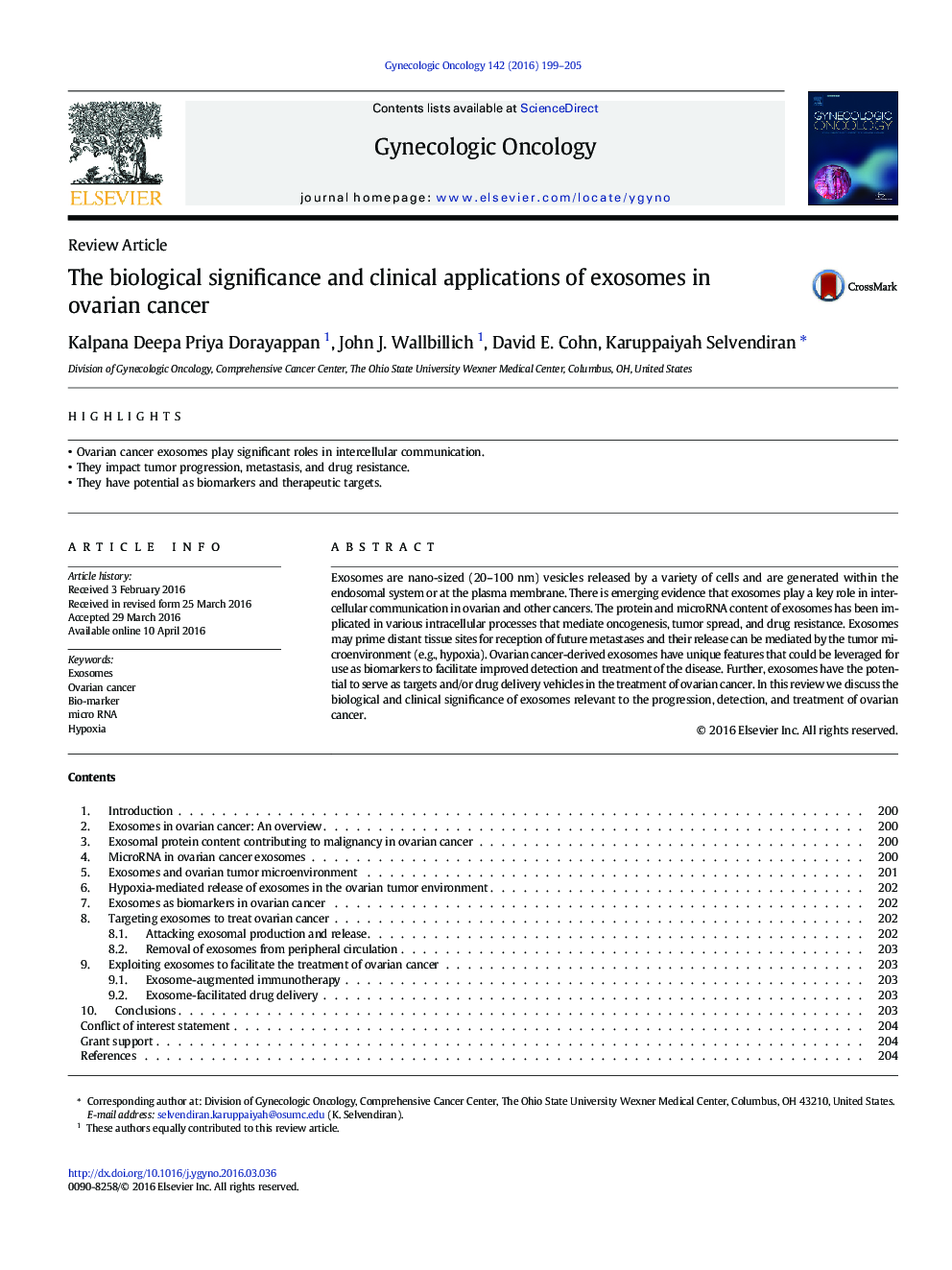| Article ID | Journal | Published Year | Pages | File Type |
|---|---|---|---|---|
| 3945410 | Gynecologic Oncology | 2016 | 7 Pages |
•Ovarian cancer exosomes play significant roles in intercellular communication.•They impact tumor progression, metastasis, and drug resistance.•They have potential as biomarkers and therapeutic targets.
Exosomes are nano-sized (20–100 nm) vesicles released by a variety of cells and are generated within the endosomal system or at the plasma membrane. There is emerging evidence that exosomes play a key role in intercellular communication in ovarian and other cancers. The protein and microRNA content of exosomes has been implicated in various intracellular processes that mediate oncogenesis, tumor spread, and drug resistance. Exosomes may prime distant tissue sites for reception of future metastases and their release can be mediated by the tumor microenvironment (e.g., hypoxia). Ovarian cancer-derived exosomes have unique features that could be leveraged for use as biomarkers to facilitate improved detection and treatment of the disease. Further, exosomes have the potential to serve as targets and/or drug delivery vehicles in the treatment of ovarian cancer. In this review we discuss the biological and clinical significance of exosomes relevant to the progression, detection, and treatment of ovarian cancer.
